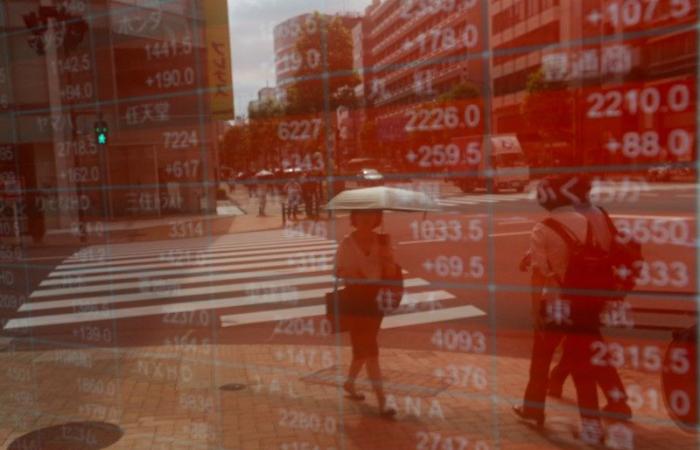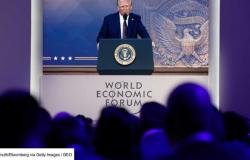A preview of the day ahead in Asian markets.
A pause in the bond slide allowed the dollar to soar and stocks to regain their footing early Tuesday, but Wall Street’s hesitation ahead of U.S. inflation data could put Asian markets back on track on the defensive Wednesday.
The weakening dollar and Treasury yields should provide emerging and Asian markets with a welcome respite. But the reversal in U.S. stocks could be short-lived, especially since U.S. inflation figures will be released after Asian markets close.
Asian markets were dynamic on Tuesday. The MSCI Asia ex-Japan index rebounded from a five-month low and Chinese blue-chip stocks jumped more than 2.5% as regulators pledged more support to markets and local chip companies have recovered after the United States stepped up its restrictive measures in the technology field.
Japanese stocks moved in the opposite direction, however, after Bank of Japan Deputy Governor Ryozo Himino raised the possibility of a rate hike next week. The Nikkei 225 index recorded its biggest decline in two and a half months, losing 1.8%.
This is the regional backdrop ahead of markets opening on Wednesday, where the main local event will be Bank Indonesia’s monetary policy decision. Spooked by recent currency volatility, Bank Indonesia is expected to keep its main interest rate at 6.00%.
With inflation at the lower end of the central bank’s target range (1.5%-3.5%), monetary policy aims to stabilize the rupee, which has lost around 7% against the dollar since its September summit.
Like most emerging countries, Indonesia has been hit hard by soaring U.S. bond yields and the dollar’s “wrecking ball,” a tightening of financial conditions that limits the central bank’s ability to ease policy.
According to Goldman Sachs, Indonesia’s financial conditions have deteriorated sharply since the end of September, mainly due to rising long-term rates and falling equities. They are now the strictest since October 2023, and close to the strictest since October 2022.
-The threat of a global trade war and punitive tariffs imposed by the United States on many countries – particularly China – continues to weigh on market sentiment ahead of the inauguration of US President-elect Donald Trump, January 20.
During his meeting with European Council President Antonio Costa on Tuesday, Chinese President Xi Jinping said China and the European Union enjoyed strong “symbiotic” economic relations and that Beijing hoped the bloc would become “a partner of trustworthy cooperation.
Separately, Mr. Trump said Tuesday that he would create a new service called the External Revenue Service “to collect tariffs, taxes and all revenues” from foreign sources.
The South Korean won is one of the best-performing Asian currencies this year, but it could fall on Wednesday after Yonhap reported that authorities investigating ousted President Yoon Suk Yeol were at his official residence to execute a warrant. ‘stop.
Here are the main developments that could guide the markets on Wednesday:
– Decision on interest rates in Indonesia
– Unemployment in South Korea (December)
– Tankan survey on services in Japan (January)






